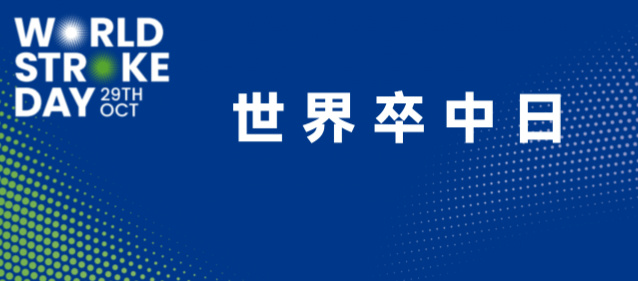关于肝脏移植前应用抗病毒治疗来预防移植后丙肝复发的一项随机对照研究
关于肝脏移植前应用抗病毒治疗来预防移植后丙肝复发的一项随机对照研究 丙肝病毒学阳性的肝脏移植者经常在移植后出现病毒复发,我们设计一项随机对照试验来检测肝脏移植前应用长效干扰素alfa-2b联合利巴韦林预防移植后病毒复发的有效性及安全性。
关于肝脏移植前应用抗病毒治疗来预防移植后丙肝复发的一项随机对照研究
丙肝病毒学阳性的肝脏移植者经常在移植后出现病毒复发,我们设计一项随机对照试验来检测肝脏移植前应用长效干扰素alfa-2b联合利巴韦林预防移植后病毒复发的有效性及安全性。入选患者患有丙肝且在等待肝脏移植,具有活体肝脏捐献者或者MELD评分较高的肝脏细胞癌。丙肝基因型1/4/6随机2:1分配到治疗和非治疗对照组;丙肝基因型2/3分配到治疗组。总之,59人接受抗病毒治疗,而20人未接受治疗,干扰素起始剂量0.75μg/kg(/) wk,利巴韦林起始剂量600mg/d,以后逐渐增加至耐受剂量。治疗或者非治疗组的患者均具有相似的基础特征。病毒学应答包括移植前的持续病毒学应答和移植后的病毒学应答,均定义为HCVRNA在治疗结束后或者移植后12周检测不到。在意向性治疗分析里,12人分配到治疗组,而1人分配到对照组,方案价值是13和0。在基因型为1/4/6的患者治疗组,23/30接受肝脏移植,22%获得治疗后应答,在基因2/3患者治疗组,21/29接受肝脏移植,29%获得移植后应答,治疗时间分别为小于8周,8-16周,大于16周患者,获得治疗后应答的百分比分别为0%,18%和50%,治疗和未治疗组具有相似的严重不良事件发生情况,但是治疗组发生严重不良时间的人数更高。结论:应用长效干扰素联合利巴韦林针对选择性的患者在移植前抗病毒可以预防移植后丙肝复发,16周以上疗程的治疗具有更高的有效性,但是治疗也伴随着高机率的严重并发症。
吉林大学第一医院肝胆胰内科 王崇 摘译
本文首次发表于[ Hepatology.2012 Jul 23. doi: 10.1002/hep.25976.]
A randomized controlled trial of pretransplant antiviral therapy to prevent recurrence of hepatitis c after liver transplantation
Abstract Hepatitis C virus (HCV) infection recurs in liver recipients who are viremic at transplantation. We conducted a randomized controlled trial to test the efficacy and safety of pre-transplant peginterferon alfa-2b plus ribavirin (PEGIFN/RBV) for prevention of post-transplant HCV recurrence. Enrollees had HCV and were listed for liver transplantation, with either potential living donors or MELD upgrade for hepatocellular carcinoma. Patients with HCV genotypes (G) 1/4/6 (n=44/2/1) were randomized 2:1 to treatment (n=31) or untreated control (n=16); HCV G2/3 (n=32) were assigned to treatment. Overall, 59 were treated and 20 were not. PEGIFN alfa-2b, starting at 0.75 μg/kg(/) wk, and ribavirin (RBV), starting at 600 mg/d, were escalated as tolerated. Patients assigned to treatment versus control had similar baseline characteristics. Combined virologic response (CVR) included pre-transplant sustained VR (SVR12) and post-transplant VR (pTVR), defined as undetectable HCV RNA 12 weeks after end of treatment or transplant, respectively. In intent-to-treat analyses, 12(19%) assigned to treatment and 1(6%) assigned to control achieved CVR (p=0.29); per-protocol values were 13(22%) and 0(0%) (p=0.03). Among treated G1/4/6 patients, 23/30 received transplant of whom 22% had pTVR; among treated G2/3 patients 21/29 received transplant, of whom 29% had pTVR. pTVR was 0%, 18%, and 50% in patients treated for <8, 8-16, and >16 weeks, respectively (p=0.01). Serious adverse events (SAEs) occurred with similar frequency in treated versus untreated patients (68% vs. 55%, p=0.30) but the number of SAEs per patient was higher in the treated group (2.7 vs. 1.3, p=0.003). Conclusion: Pretransplant treatment with PEGIFN/RBV prevents post-transplant recurrence of HCV in selected patients. Efficacy is higher with ò16 weeks of treatment, but treatment is associated with increased risk of potentially serious complications. (HEPATOLOGY 2012.).






